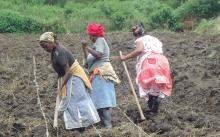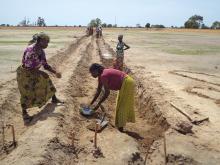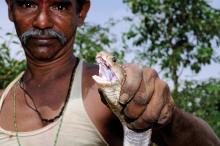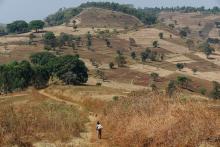Land Library
Welcome to the Land Portal Library. Explore our vast collection of open-access resources (over 74,000) including reports, journal articles, research papers, peer-reviewed publications, legal documents, videos and much more.
/ library resources
Showing items 1 through 9 of 98.Food security in Africa needs abundant, affordable and nutritious food for the growing population.
•Smallholder farmers lack sufficient land or economic incentives to invest in agriculture.
•The above issues create a ‘wicked problem’ – a conundrum for future food security.
The Lawra district of the Upper West region was selected as the case study. This study compared crop yields for FMNR and non-FMNR farmers. FMNR farmers are classified as having at least 8 trees per acre, with an average of 13 trees per acre (33 per ha) and a maximum of 40.
This paper examines the intersections between youth access to land, migration decisions and employment opportunities using nationally representative and multi-year data from multiple African countries.
A narrative on rural youth in Africa has continued to evolve in policy circles around the world. Much of it is driven by population statistics that point to an imminent youth bulge in Africa and concerns about a poor economic outlook (stagnation) for African productivity and growth.
Following the end of apartheid, South Africa’s government set itself ambitious goals with a planned land reform. However, there have since been barely any changes in the country’s agricultural structure, and the positive impacts that were hoped for on rural livelihoods have hardly materialised.
A project in Burkina Faso has given a clear demonstration of what supporting family farms can achieve in terms of poverty alleviation and rural development. One important success factor was the transfer of land to farmers, accompanied by a secure land-tenure policy adapted to their needs.
Snakebites are a crucial, yet underreported issue in many South Asian countries. In India, they kill some 50,000 people every year. However, the government has neglected the issue. Now, it’s time to seriously address this all but forgotten public health problem, our author maintains.
Cette publication d’Options Méditerranéennes (OM) réunit les travaux du réseau Foncimed présentés au séminaire de Cargèse d’octobre 2011 et de Montpellier de juillet 2013.
Fishery plays a crucial role in poverty and hunger alleviation. It is therefore all the more important to secure the long-term conservation of fish stocks as a natural resource and to ensure fair access to them.





